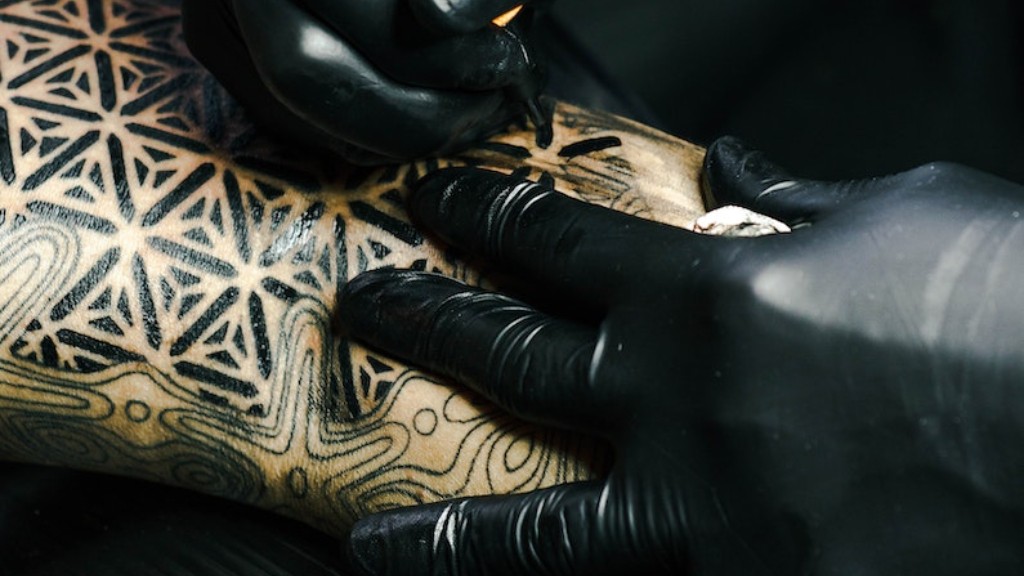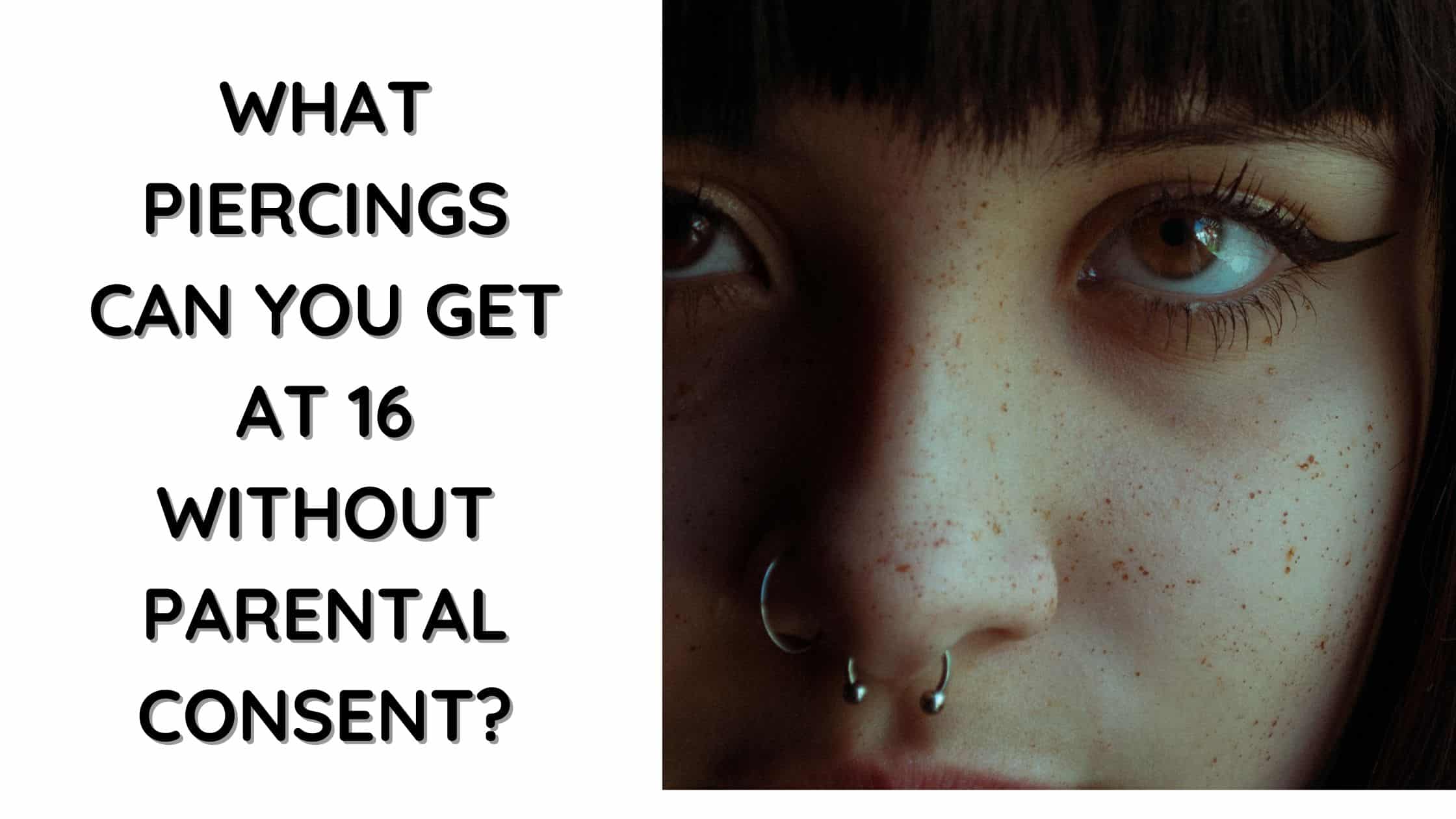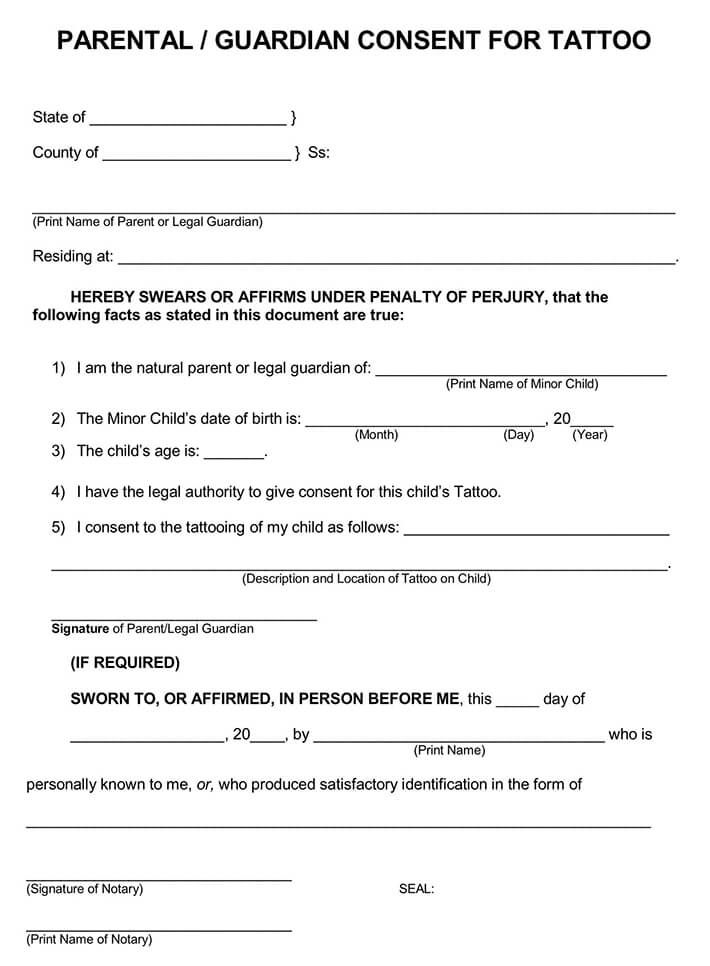Getting a tattoo is a significant decision, especially for teenagers, and understanding the legalities is crucial. If you're 16 and wondering if you can get a tattoo in California with parental consent, this article will provide all the information you need to know. The process involves more than just parental permission, and we'll break down the laws and regulations that govern tattooing for minors in California.
Before diving into the specifics, it's important to understand that tattoos are permanent, and the decision to get one should not be taken lightly. California has strict laws regarding tattooing, particularly for minors, to ensure their safety and well-being. These laws are designed to protect young individuals from making impulsive decisions that could affect them for life.
This article will explore the legal requirements, parental consent forms, potential risks, and other important factors to consider. By the end, you'll have a comprehensive understanding of whether getting a tattoo at 16 in California is feasible and how to proceed safely and legally.
Read also:Bryan Adams Wife And Kids A Closer Look At His Family Life
Table of Contents
- The Law on Tattooing Minors in California
- Understanding Parental Consent
- Requirements for Tattoo Shops
- Potential Risks of Tattooing for Minors
- Alternatives to Permanent Tattoos
- Frequently Asked Questions
- Statistics on Tattooing Among Minors
- Legal Considerations for Parents
- Health and Safety Tips
- Conclusion
The Law on Tattooing Minors in California
California has specific laws governing tattooing for individuals under the age of 18. According to California Penal Code Section 653o, it is illegal for anyone to tattoo a minor without parental consent. The law is in place to protect minors from making irreversible decisions without proper guidance.
While parental consent is required, it must be documented and notarized. This ensures that the consent is genuine and that parents are fully aware of their child's decision. Additionally, tattoo artists must verify the minor's age through a valid form of identification, such as a driver's license or birth certificate.
Key Points About California Tattoo Laws
- Tattooing minors is illegal without parental consent.
- Parental consent must be notarized.
- Tattoo artists must verify the minor's age with proper identification.
Understanding Parental Consent
Parental consent is a critical component when it comes to tattooing minors in California. Parents must provide written consent, which must be notarized to ensure its validity. This process is designed to prevent minors from forging consent forms or obtaining tattoos without their parents' knowledge.
Parents should carefully consider the decision before granting consent. It's essential to discuss the implications of getting a tattoo with their child and ensure they fully understand the permanence and potential consequences.
Steps for Obtaining Parental Consent
- Parents must sign a consent form provided by the tattoo shop.
- The form must be notarized by a licensed notary public.
- Parents should accompany their child to the tattoo shop for verification.
Requirements for Tattoo Shops
Tattoo shops in California must adhere to strict regulations to ensure the safety and legality of their services. These regulations apply to all clients, including minors seeking tattoos with parental consent. Shops must verify the minor's age, ensure parental consent is valid, and maintain proper hygiene and safety standards.
Read also:Sam Merlotte A Comprehensive Guide To The Iconic Character From True Blood
In addition to legal requirements, tattoo shops must provide clear information about the tattooing process, potential risks, and aftercare instructions. This ensures that both the minor and their parents are fully informed before proceeding.
Regulations for Tattoo Shops
- Verify the minor's age with a valid ID.
- Ensure parental consent is notarized.
- Provide detailed information about the tattooing process and aftercare.
Potential Risks of Tattooing for Minors
While tattoos can be a form of self-expression, there are potential risks associated with getting one, especially for minors. These risks include health concerns, social implications, and long-term consequences. It's important for both minors and their parents to be aware of these risks before making a decision.
Health risks include infections, allergic reactions, and scarring. Socially, tattoos can impact future job prospects or social interactions. Additionally, minors may regret their decision as they grow older and their preferences change.
Common Health Risks
- Infections from unsterile equipment.
- Allergic reactions to ink.
- Scarring or keloid formation.
Alternatives to Permanent Tattoos
For those who are hesitant about committing to a permanent tattoo, there are several alternatives available. These options allow for self-expression without the permanence of a traditional tattoo. Some popular alternatives include temporary tattoos, henna, and semi-permanent tattoos.
Temporary tattoos and henna are great options for those who want to experiment with designs before committing to a permanent tattoo. Semi-permanent tattoos, on the other hand, last longer but can still be removed if desired.
Types of Temporary Tattoos
- Decal-based temporary tattoos.
- Henna designs.
- Semi-permanent tattoos using specialized ink.
Frequently Asked Questions
Can You Get a Tattoo at 16 in California?
Yes, you can get a tattoo at 16 in California, but only with parental consent that is properly notarized. The tattoo shop must also verify your age and ensure the consent form is valid.
Do Tattoo Shops Require Notarized Consent?
Yes, tattoo shops in California require notarized parental consent for minors under the age of 18. This ensures the consent is genuine and legally binding.
Can Parents Revoke Consent After the Tattoo is Done?
No, once the tattoo is completed, it cannot be undone. However, parents can discuss the decision with their child and ensure they understand the permanence of the tattoo.
Statistics on Tattooing Among Minors
According to a study by the Centers for Disease Control and Prevention (CDC), approximately 24% of individuals aged 18-29 have at least one tattoo. While statistics specifically for minors are limited, the trend suggests that tattooing among younger individuals is on the rise.
It's important to note that many of these individuals may have obtained tattoos as minors, highlighting the need for education and guidance regarding the decision-making process.
Legal Considerations for Parents
Parents play a crucial role in the decision to allow their child to get a tattoo. They must consider the legal implications, potential risks, and long-term consequences. Providing consent is a serious responsibility, and parents should ensure they fully understand the process and implications before granting permission.
In addition to legal considerations, parents should discuss the decision with their child and ensure they are making an informed choice. This includes understanding the permanence of the tattoo, potential health risks, and social implications.
Health and Safety Tips
Ensuring the health and safety of minors during the tattooing process is paramount. Both parents and minors should take steps to minimize risks and ensure a safe experience. This includes choosing a reputable tattoo shop, following aftercare instructions, and monitoring for any signs of infection or adverse reactions.
Here are some key health and safety tips:
- Choose a licensed and reputable tattoo shop.
- Ensure all equipment is sterile and properly maintained.
- Follow aftercare instructions provided by the tattoo artist.
- Monitor the tattoo site for signs of infection or allergic reactions.
Conclusion
Getting a tattoo at 16 in California is possible with parental consent, but it requires careful consideration and adherence to legal requirements. Minors and their parents must understand the permanence, potential risks, and long-term implications of getting a tattoo. By following the proper procedures and choosing a reputable tattoo shop, both parties can ensure a safe and informed experience.
We encourage readers to share their thoughts and experiences in the comments section below. Additionally, feel free to explore other articles on our site for more information on tattoos, legal considerations, and health and safety tips. Remember, making an informed decision is key to a positive outcome.


